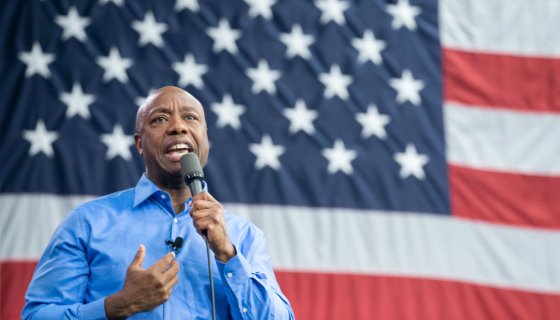
Source: The Washington Post / Getty
Republican Senator Tim Scott has officially announced that he will run for president in 2024 in front of constituents in his home state.
Scott made the announcement on Monday (May 22nd) in his hometown of North Charleston, South Carolina. He positioned himself as a true conservative candidate who values “freedom and hope and opportunity.” In his 40-minute speech, he spoke about coming up from poverty and being raised by a single mother to his current position as the only Black Republican member of the Senate.
“We have to have a compassion for people who don’t agree with us,” he said. “We have to believe that our ideas are so strong and so powerful and so persuasive that we can actually take it to the highest points in the world and be successful but we also have to be able to take it all the way down to places that today are hopeless and prove that who we are works for all Americans.” He’d go on to state that America is not a racist country.
Scott would also bash the Biden administration repeatedly in his speech while declaring his willingness to enter the culture wars concerning schools raging across the nation. “I will lead a revolution for excellence in our schools. Less C-R-T and more ABCs,” he said. Notably, he didn’t mention any other GOP presidential candidates which include fellow South Carolinian Nikki Haley and former President Donald Trump. In a post on his Truth Social account, wished him “good luck” before going on to bash Florida Governor Ron DeSantis, who is expected to also enter the race soon.
Senator Scott enters the 2024 campaign with a sizable war chest of $22 million and a firm fundraising background. But he faces a challenge as the GOP primary field grows, and even finds himself running behind Trump in his home state despite polls showing some support nationally. Scott also has to counter a reputation built on questionable panderings, such as his failure to support the George Floyd Justice In Policing Act, voting against the confirmation of Supreme Court Justice Ketanji Brown Jackson and being the face of a racially stereotypical outreach to Black voters for the Trump Tax Bill in 2017 which bore the hashtag #KeepYoMoney.
Source link

